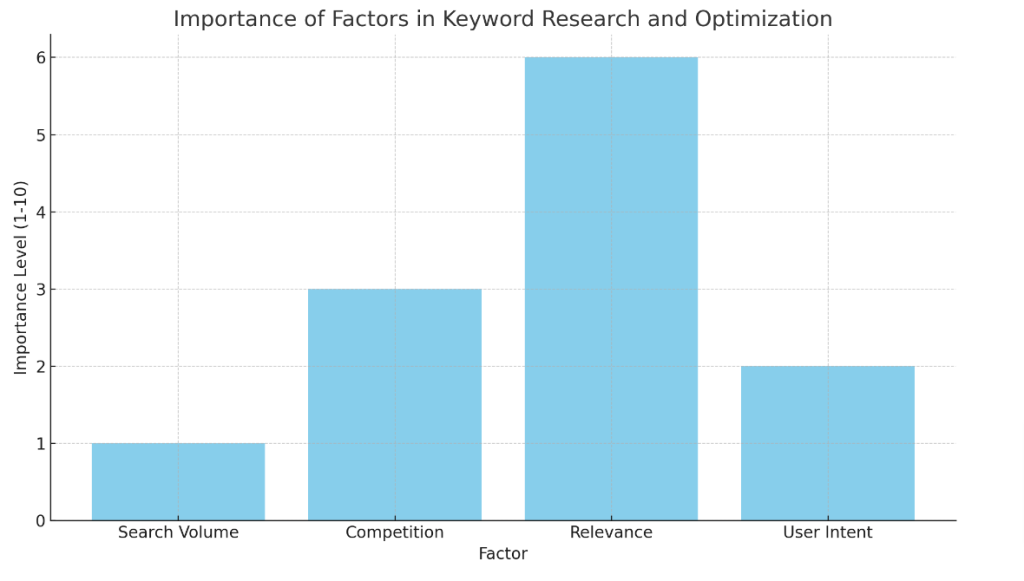Mastering the Art of SEO Writing: Strategies for Success
Struggling to climb the Google rankings with your content? You are not alone. In fact, it’s estimated that 91% of web pages get no organic traffic from Google at all. This post will introduce you to SEO writing and provide practical tactics to boost your page ranking and gain visibility.
Ready for a breakthrough?.
Key Takeaways
- SEO, or search engine optimization, is a crucial digital marketing strategy for improving website visibility and attracting organic traffic.
- Conducting thorough keyword research and strategically incorporating keywords into content helps optimize websites for search engines.
- Creating valuable and engaging content that aligns with the buyer’s journey is essential for driving results in SEO efforts.
- Enhancing website performance through technical SEO strategies, such as ensuring accessibility and optimizing site speed, improves user experience and increases search rankings.
Understanding SEO Basics
SEO, or search engine optimization, is the process of improving a website’s visibility and rankings on search engine results pages through various strategies and techniques.
What is SEO?
Search Engine Optimization, or SEO, is a vital digital marketing strategy. It involves optimizing your online content so that search engines like Google find it easy to understand and rank higher in search results.
The primary goal of SEO is to increase the visibility of your website on search engine results pages (SERPs), attracting more organic or natural traffic. An effective blend of keyword usage, high-quality content, HTML tags and links form the foundation for successful SEO.
With constant algorithm updates from search engines, staying relevant requires consistent learning and adaptation in your SEO practices.
How does it work?
Search engines use complex algorithms to identify and rank pages. They scan or ‘crawl’ across websites, scouring content for keywords that match a user’s query. The more matching keywords—and the more relevant your content—the higher the ranking.
But it doesn’t stop there! Search engines also evaluate how users interact with sites. If visitors stay longer and click on multiple pages, search engines perceive your site as valuable and boost its ranking.
SEO strategies are all about aligning with these algorithm dynamics to enhance website visibility and attract organic traffic.
Why is it important for businesses?
Businesses today cannot overlook the significance of Search Engine Optimization (SEO). It’s not just a buzzword; it holds power in dictating online visibility. SEO serves as an excellent tool for driving organic traffic, enhancing search engine rankings and optimizing website performance across industries.

The finance industry, particularly banks, greatly benefits from effective SEO strategies. With the majority of customers turning to digital platforms for banking solutions, an optimized website becomes indispensable.
Incorporating local search rankings into their marketing strategy allows businesses to connect directly with their local market base, increasing trust in potential customers. Furthermore, link building and keyword research aid in making content easily discoverable and relatable to users’ needs.
Keyword Research and Optimization
To optimize your website for search engines, it’s crucial to conduct thorough keyword research and strategically incorporate them into your content.
How to conduct keyword research
Conducting keyword research is an essential step in your SEO strategy. To find the best keywords for your website, follow these steps:
- Start with a brainstorming session. Think about the main topics and themes related to your business or industry.
- Use keyword research tools like Google Keyword Planner, SEMrush, or Ahrefs to generate a list of potential keywords.
- Analyze the search volume and competition level for each keyword. Focus on keywords with high search volume and low competition.
- Consider long – tail keywords, which are more specific phrases that target a niche audience. These can be easier to rank for and attract more qualified traffic.
- Look for related keywords and synonyms to include in your content. This will help search engines understand the context of your page and improve its visibility.
- Pay attention to user intent when selecting keywords. Choose keywords that align with what users are searching for and offer valuable information or solutions.
- Prioritize local keywords if you have a physical location or serve customers in specific areas. Include city names or other relevant geographical terms in your keywords.
- Regularly review and update your keyword list as market trends and customer preferences change over time.
Strategies for optimizing keywords
To optimize your keywords and improve your website’s search ranking, here are some effective strategies:
- Conduct thorough keyword research using tools like Google Keyword Planner or Moz Keyword Explorer.
- Identify long – tail keywords that have high search volume and low competition.
- Incorporate your target keywords naturally into your website’s content, including the title tag, headings, and meta description.
- Use variations of your keywords throughout the content to increase relevance and visibility.
- Optimize your images by adding descriptive alt text with relevant keywords.
- Create informative and engaging content that provides value to your target audience.
- Structure your content using subheadings to make it easy for both users and search engines to understand.
- Make sure your website loads quickly by optimizing image sizes, minimizing code, and leveraging caching.
- Ensure that your website is mobile – friendly and responsive for a better user experience on all devices.
- Regularly monitor and analyze the performance of your targeted keywords to identify any necessary adjustments.
Importance of long-tail keywords
Long-tail keywords are crucial for improving your website’s visibility and attracting relevant traffic. These longer, more specific phrases may have lower search volumes but tend to have higher conversion rates.
By targeting long-tail keywords that align with your business niche or products, you can increase the chances of ranking higher in search engine results pages (SERPs) and reaching potential customers who are actively searching for what you offer.
Incorporating long-tail keywords into your content helps to optimize your website effectively, enhancing its overall SEO performance.
Crafting SEO-Friendly Content
Learn valuable tips for creating engaging content that ranks well in search engine results. Improve your website’s visibility and attract organic traffic with optimized keywords and a focus on the buyer’s journey.
Ready to boost your SEO game? Keep reading!
Tips for creating valuable and engaging content
Create content that grabs attention and keeps readers engaged. Use these tips to make your content stand out:
- Use a compelling headline with relevant keywords to attract readers.
- Start with a strong introduction that hooks your audience and makes them want to keep reading.
- Make your content easy to scan by using subheadings, bullet points, and numbered lists.
- Keep paragraphs short and concise to maintain readers’ interest.
- Use visuals such as images, infographics, or videos to break up the text and make it more visually appealing.
- Incorporate storytelling techniques to make your content relatable and memorable.
- Provide value by offering in – depth information, practical tips, or expert insights.
- Include statistics or research findings to back up your claims and build credibility.
- Write in a conversational tone that speaks directly to your target audience.
- End with a strong call-to-action that prompts readers to take the next step.
Importance of including keywords naturally
Including keywords naturally within your content is crucial for effective SEO. By seamlessly integrating relevant keywords into your writing, you increase the likelihood of search engines recognizing the relevance and quality of your content.
This can result in higher rankings on search engine results pages (SERPs) and increased organic traffic to your website.
When you include keywords naturally, it not only improves your SEO strategy but also enhances the readability and user experience of your content. Instead of awkwardly stuffing keywords throughout your text, focus on creating valuable and engaging information that aligns with user intent.
Craft well-written sentences that flow naturally while strategically placing keywords in headings, subheadings, meta tags, and within the body of your content.
Remember, incorporating keywords organically allows search engines to understand what topics or themes are being discussed without compromising the overall quality of your writing.

Utilizing buyer’s journey content
Crafting SEO-friendly content is not just about including keywords, but also understanding the buyer’s journey. By creating content that aligns with each stage of the buyer’s journey – awareness, consideration, and decision-making – you can effectively guide potential customers towards making a purchase.
Tailor your content to provide valuable information at each stage, addressing their pain points and offering solutions. This strategic approach helps build trust in potential customers while boosting your website visibility and search rankings.
Start by identifying your target audience’s needs and preferences at each stage of their buying process, then create engaging content that speaks directly to them.
Technical SEO: Enhancing Website Performance
In this section, we will explore the importance of enhancing website performance through technical SEO strategies.
Ensuring website accessibility
Ensuring website accessibility is crucial for improving user experience and reaching a wider audience. By making your website accessible to people with disabilities, you not only comply with legal requirements but also create an inclusive online environment.
To achieve this, use alt tags for images, provide transcripts for videos, and ensure that your website is compatible with screen readers. Additionally, optimize the color contrast of your site and make sure it can be navigated using a keyboard alone.
Prioritizing website accessibility helps to enhance user satisfaction and encourages more visitors to stay on your site longer.
Optimizing site speed
Optimizing site speed is crucial for improving your website’s performance and user experience. Here are some effective strategies to enhance your site speed:
- Minimize HTML, CSS, and JavaScript files to reduce page load time.
- Compress images without compromising their quality to reduce file size.
- Enable browser caching to locally store data and decrease loading time for returning visitors.
- Use a content delivery network (CDN) to distribute your website’s content across multiple servers, reducing latency and improving load times.
- Remove unnecessary plugins, widgets, or scripts that may slow down your website.
- Utilize lazy loading techniques to delay the loading of non – critical elements until they are needed by the user.
- Optimize your database by regularly deleting spam comments, post revisions, and unused plugins/themes.
Importance of mobile optimization
Mobile optimization is crucial for businesses today. With the increasing use of smartphones and tablets, more and more people are accessing websites on their mobile devices. If your website is not optimized for mobile, it can result in a poor user experience and higher bounce rates.
Mobile optimization ensures that your website loads quickly, has easy-to-navigate menus and buttons, and displays correctly on different screen sizes. By prioritizing mobile optimization, you can provide a seamless browsing experience for users across all devices, improve your search engine rankings, and ultimately drive more traffic to your website.
Backlink Building and Off-Page SEO
Building quality backlinks is crucial for boosting your website’s search engine rankings. Implementing effective strategies such as creating valuable resources and utilizing digital PR can help you to earn high-quality backlinks that improve your website’s authority and visibility in search results.
Importance of backlinks for SEO
Backlinks play a crucial role in SEO. They are links from external websites that direct users to your site. These backlinks act as votes of confidence for search engines, indicating that your website is trustworthy and authoritative.
When high-quality websites link back to yours, it signals to search engines that your content is valuable and relevant. This can lead to higher rankings in search results and increased organic traffic to your site.
Building quality backlinks should be a key part of your SEO strategy as they help boost visibility and improve search engine rankings for your website.
Strategies for building quality backlinks
Building quality backlinks is an essential part of a successful SEO strategy. Here are some effective strategies for building these valuable links:
- Guest blogging: Write high-quality articles for other websites in your industry, including a link back to your own site.
- Influencer outreach: Reach out to key influencers in your niche and ask them to share your content or collaborate on a project together.
- Social media promotion: Share your content on social media channels, encouraging others to link back to your website.
- Resource link building: Create valuable resources such as guides, ebooks, or templates that others will want to link to.
- Broken link building: Find broken links on other websites within your industry and offer them a replacement link from your own site.
- Participate in online communities: Engage in forums, comment sections, and discussion boards related to your industry, providing helpful insights and linking back to relevant content on your website.
- Collaborate with partners or suppliers: Partner with other businesses or suppliers in your industry and exchange links organically within relevant content.
Utilizing digital PR and creating valuable resources
To enhance your website’s search engine optimization (SEO), it is crucial to leverage digital PR and create valuable resources. Digital PR involves building relationships with online influencers and authoritative websites to gain high-quality backlinks, which can significantly boost your SEO rankings.
By creating valuable resources such as informative articles, guides, or videos related to your industry, you establish yourself as an expert, increase brand awareness, and attract organic traffic to your website.
These strategies not only improve your search engine visibility but also enhance your overall online presence in a competitive market.
Conclusion
In conclusion, understanding and implementing effective SEO strategies is vital for businesses in the banking and finance industry looking to improve their online visibility. Through keyword research, optimizing content, enhancing website performance, and building quality backlinks, banks can boost their search rankings and attract more organic traffic.
By demystifying the process of SEO writing, financial institutions can rank higher on search engine results pages (SERPs) and ultimately bank on increased trust from potential customers.

